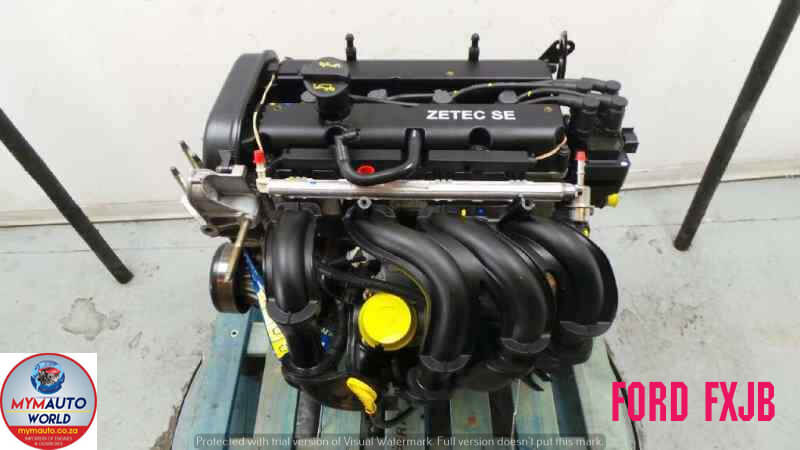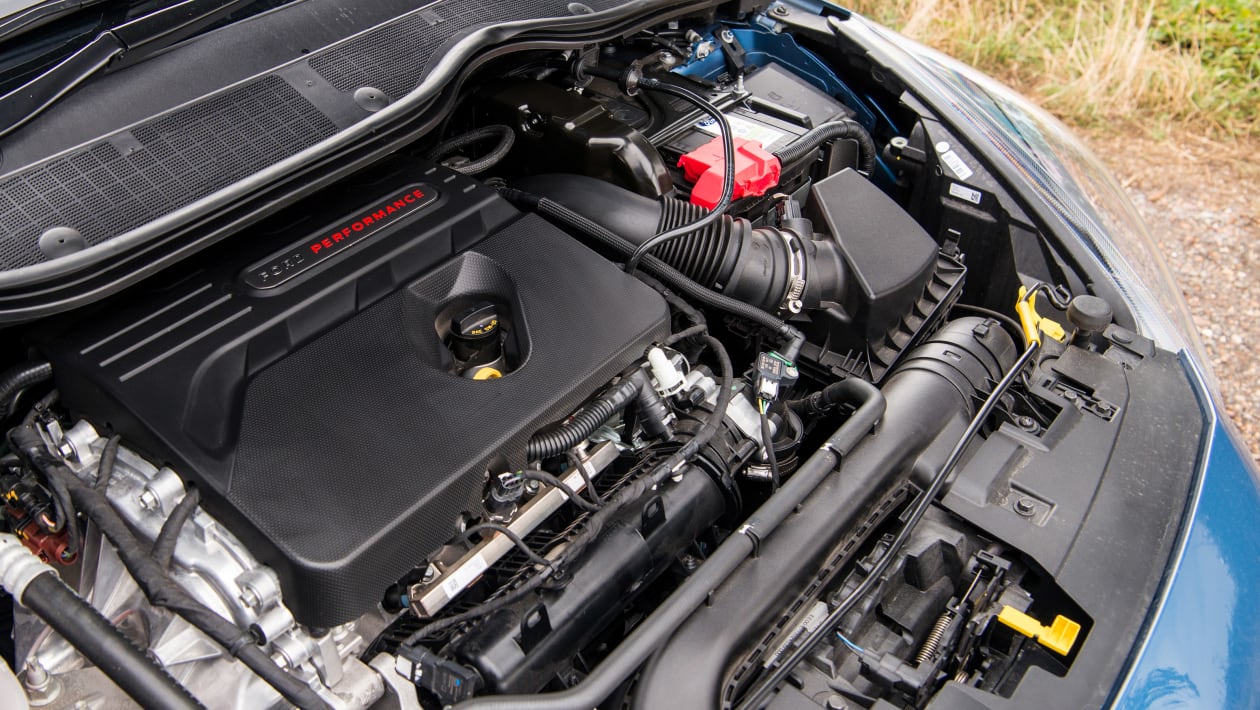Discover the Latest Ford Fiesta Engine Upgrades for Enhanced Power
Discover the Latest Ford Fiesta Engine Upgrades for Enhanced Power
Blog Article
The Future of Engines: Technologies Driving Lasting Power Solutions
As the vehicle industry navigates the critical transition in the direction of sustainability, the future of engines is progressively specified by groundbreaking technologies. Electric engine advancements, alongside promising advancements in hydrogen fuel cells and biofuels, are reshaping the landscape of power options.
Electric Engine Advancement
The advancement of electrical engine advancements symbolizes a crucial change in the auto and aerospace sectors, driven by the immediate demand for lasting choices to nonrenewable fuel sources. This change is identified by considerable improvements in battery innovation, power electronic devices, and electric motor design, which collectively enhance the performance and efficiency of electrical engines.
Current advancements have actually led to the creation of lighter, a lot more energy-dense batteries, such as lithium-silicon and solid-state batteries, which guarantee longer varieties and shorter charging times. Additionally, enhancements in electric motor performance, such as using long-term magnets and progressed cooling down systems, allow electric engines to operate successfully under differing conditions. These improvements not only improve lorry performance yet likewise contribute to a decrease in overall power intake.
In addition, the integration of sophisticated software application formulas has actually maximized power management in electrical vehicles, enabling regenerative stopping and anticipating billing approaches. As makers progressively welcome electrical propulsion, the automotive and aerospace industries are seeing a standard shift in the direction of greener modern technologies. This development not just meets regulative needs however likewise aligns with customer preferences for eco-friendly transportation solutions, strengthening electric engines as a keystone of future lasting mobility.
Innovations in Biofuels
As the automotive and aerospace markets progressively prioritize lasting power sources, advancements in biofuels arise as a complementary option to electrical engines. Biofuels, stemmed from organic products such as crops, waste, and algae, offer a cutting-edge avenue for lowering greenhouse gas exhausts and dependence on fossil fuels.
Current research study has concentrated on enhancing the efficiency and sustainability of biofuel manufacturing. Second-generation biofuels utilize non-food feedstocks, decreasing competitors with food supply and minimizing environmental influence. In addition, advancements in synthetic biology have actually made it possible for the engineering of bacteria to produce biofuels better, causing greater yields and lower manufacturing prices.
In addition, the advancement of drop-in biofuels allows for smooth combination into existing infrastructure, making it possible for a smoother change for sectors traditionally reliant on fossil gas. ford fiesta engine. These gas can be made use of in current engines without adjustments, facilitating their adoption across numerous markets
Investments in biofuel technology, together with supportive policies, are necessary to drive technology and scalability. As the worldwide community looks for to fight climate change, biofuels use a practical, prompt option that aligns with the overarching objective of sustainability in transportation and aeronautics.
Hydrogen Fuel Cell Innovation
An expanding number of researchers and business are checking out hydrogen fuel cell modern technology as a practical option to conventional source of power in transport and energy systems. This modern technology transforms chemical energy from hydrogen right into power with an electrochemical response, with water as the only result, making it an environmentally pleasant alternative.
The core of hydrogen gas cells is the gas cell stack, where hydrogen molecules are divided right into protons and electrons. The flow of electrons generates electricity, while protons move with a membrane to integrate with oxygen from the air, creating water. published here This procedure causes high efficiency and reduced discharges, positioning hydrogen fuel cells as an important gamer in the transition to sustainable energy.
Substantial innovations have actually been made in improving the longevity and efficiency of gas cells, along with reducing costs via cutting-edge manufacturing methods. The advancement of hydrogen manufacturing approaches, such as electrolysis powered by eco-friendly power resources, enhances the sustainability of the total system. As facilities for hydrogen refueling expands and manufacturing techniques end up being a lot more effective, hydrogen fuel cell modern technology holds great pledge for decarbonizing different industries, including heavy-duty transport and stationary power generation.
Hybrid Solutions and Their Effect
Crossbreed systems stand for a significant evolution in sustainable engine innovation, combining typical inner combustion engines with electrical propulsion to enhance energy efficiency and decrease exhausts (ford fiesta engine). This dual approach enables automobiles to make use of both power sources, allowing greater versatility in energy intake and minimizing dependence on nonrenewable fuel sources

In enhancement to environmental advantages, hybrid systems supply consumers a viable change towards totally electric vehicles. They relieve variety anxiousness by integrating the convenience of gas with the advantages of electrical propulsion, making them an appealing option for a larger target market.
The Function of AI in Engine Design
Leveraging sophisticated algorithms and artificial intelligence methods, the auto industry is progressively incorporating synthetic knowledge (AI) right into engine design processes. AI boosts the efficiency and efficiency of he said layout by evaluating huge datasets to recognize optimal setups and efficiency parameters. This ability permits engineers to imitate numerous operating problems and forecast engine actions under several situations, significantly decreasing the time and expense related to typical prototyping approaches.
In addition, AI helps with the advancement of sophisticated materials and combustion processes tailored for sustainability. By optimizing fuel efficiency and reducing discharges, AI-driven styles align with global initiatives targeted at reducing the carbon footprint of automotive engines. Artificial intelligence formulas can additionally forecast upkeep demands, leading to enhanced dependability and longevity of continue reading this engine components.
Moreover, AI contributes in the integration of electrification technologies, such as crossbreed systems, where it can enhance battery administration and energy recovery procedures. As the sector moves towards more lasting power solutions, the duty of AI in engine layout ends up being progressively important, driving innovation and enhancing the efficiency of future engines. Eventually, the partnership in between AI and engine style heralds a new era of smarter, cleaner, and more reliable vehicle technologies.

Verdict
Finally, the future of engines is being formed by a merging of cutting-edge innovations that focus on sustainability. Electric engine improvements, biofuel advancements, hydrogen gas cells, and hybrid systems collectively add to a significant reduction in emissions and environmental effect. Furthermore, the assimilation of expert system in engine layout boosts efficiency and efficiency. These transformative options emphasize a commitment to producing a cleaner, extra lasting vehicle landscape, inevitably benefiting both society and the environment.
Electric engine innovations, along with appealing advancements in hydrogen gas cells and biofuels, are improving the landscape of power remedies. In addition, enhancements in electric motor performance, such as the usage of irreversible magnets and advanced cooling systems, make it possible for electrical engines to run successfully under varying problems. By maximizing gas efficiency and minimizing exhausts, AI-driven designs align with international efforts aimed at reducing the carbon impact of auto engines. As the market relocates towards more lasting power services, the role of AI in engine style becomes significantly crucial, driving development and boosting the efficiency of future engines. Electric engine improvements, biofuel developments, hydrogen gas cells, and hybrid systems jointly contribute to a substantial reduction in exhausts and environmental impact.
Report this page